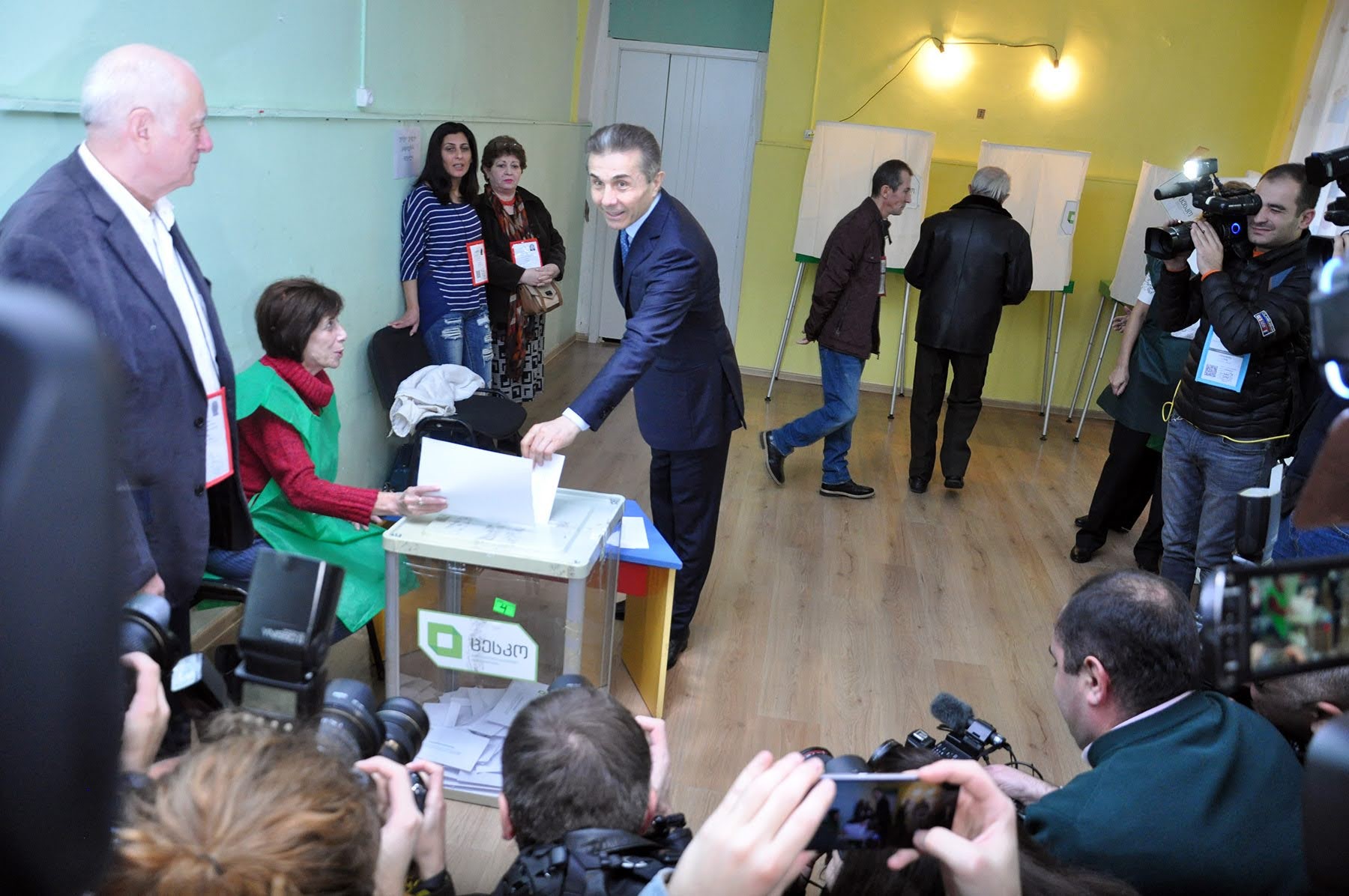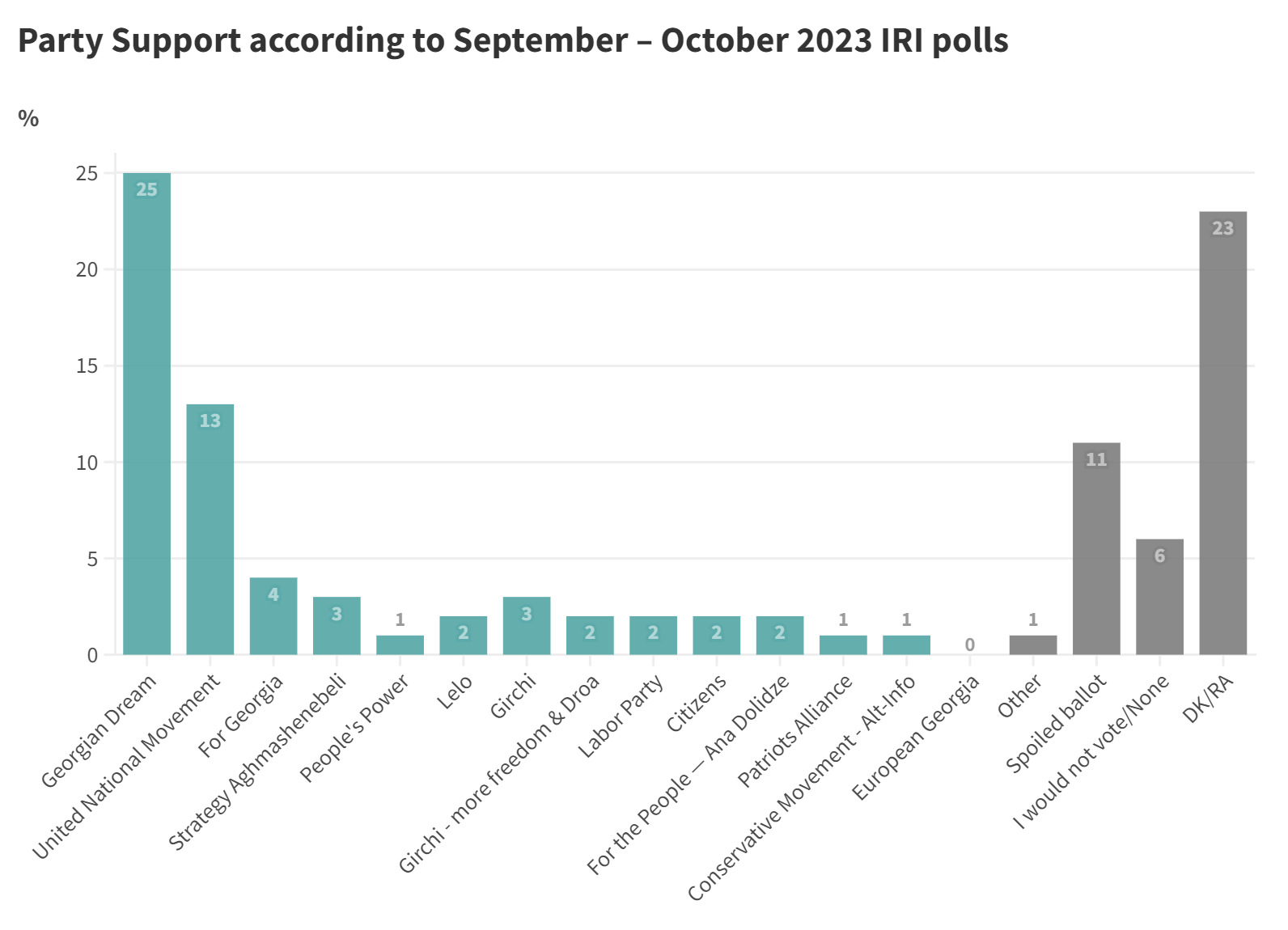
New polling from the International Republican Institute (IRI) has found support for Georgian Dream has grown to 25%, from 19% in March.
IRI published the results of their public opinion survey on Wednesday, covering political and social trends in the country.
Asked who they would vote for if elections were held ‘this coming Saturday’, only 13% of respondents said they would vote for the United National Movement (UNM). The survey also gave the UNM the highest negative rating, with 40% of respondents stating they would not vote for the party ‘under any circumstances’, compared to 29% who said the same of Georgian Dream.

The survey also showed that 18% of its respondents would not vote for the Gichi—More Freedom and Droa coalition, 16% would not vote for Girchi, while 13% would not support European Georgia.
In addition, 6% of respondents said that they would not vote at all, 18% did not know who they would vote for, and 5% refused to answer.
The USAID-funded poll surveyed 1,200 people in person between September and October 2023. Fieldwork was conducted by the Institute of Polling and Marketing (IPM).
Wednesday’s survey suggested all opposition parties except for Georgian Dream and the UNM would struggle to overcome the 5% threshold to enter parliament.
Earlier this week, the ruling party ruled out lowering the theshold. Georgian Dream had previously vowed to do so if the EU had approved Georgia’s bid for candidacy in 2022.
Georgia is expected to hold its next parliamentary elections in October 2024.
‘All parties should review their strategy’
After IRI published the survey, Khatuna Samnidze, who chairs the Republican Party, said that ‘all parties should review their strategy’.
‘It is vital to find resources for negotiations and unification so that not a single opposition vote is lost in the 2024 elections’, she said.
The Republican Party joined an electoral alliance with the UNM just ahead of the 2020 parliamentary elections.
However, the UNM’s Chair, Levan Khabeishvili, appeared optimistic about the opposition being able to defeat the Georgian Dream.
‘All studies and polls confirm that the defeat of the Russian party [Georgian Dream] by a large margin is possible if the small, pro-Western opposition groups do the right thing strategically’, he said.
In July, Giorgi Vashadze’s Strategy Aghmashenebli announced that they were also joining a pre-election coalition with the UNM.
Other opposition groups, such as Droa and Girchi—More Freedom have ruled out joining with the UNM, instead forming their own coalition.
Georgian Dream’s Chair, Irakli Kobakihdze, criticised the survey, stating that the ‘IRI and IPM have messed up before and they can easily mess up now too’.
‘These organisations don’t trust themselves anymore, they’ve messed up the election results so many times.’









